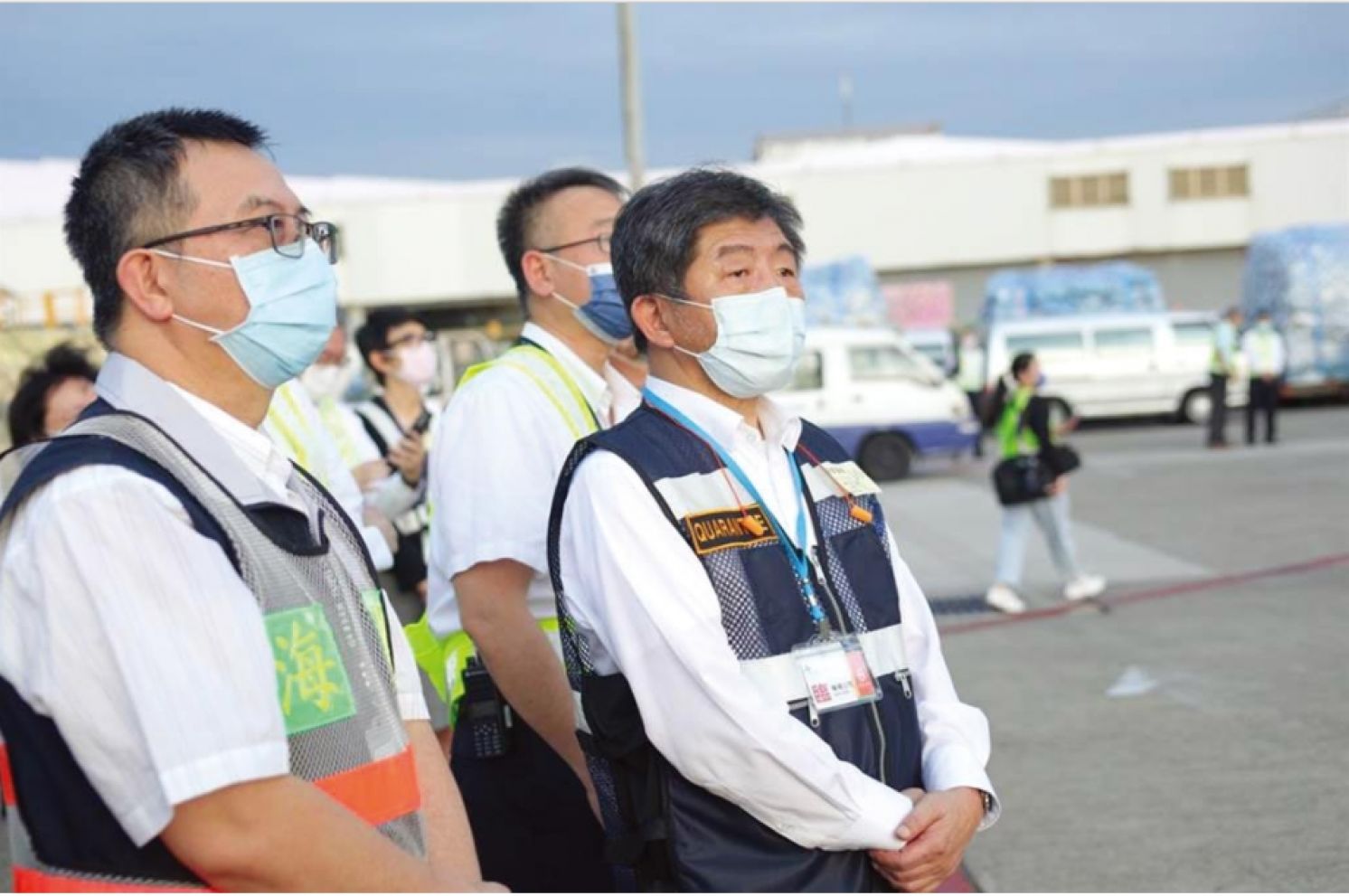
Blocked Vaccines But Now Eager to Take Credit
By Chen Chao-ping
China Times, July 13 ,2020
Hon Hai Precision Industry (Foxconn) and the Taiwan Semiconductor Manufacturing Company (TSMC) announced that they have signed contracts with Shanghai Fosun Pharma and have completed the purchase of 5 million doses of BioNTech vaccines, which will be donated to the Ministry of Health and Welfare (MOHW). The Executive Yuan held a press conference at the same time, where Spokesman Lo Ping-cheng thanked the two donors for their free donations, and establishing a cooperation model for the government and private enterprises. At the same time, he denied that the government has been trying to block vaccines. Looking back at the BioNTech vaccine procurement process which has taken nearly a year, the government was not able to get any. Government officials first tried to shirk responsibility but are now eager to take credit for something that they did not do. How boring and shameless.
After failing to procure BioNTechBioNTech vaccines, the administration of President Tsai Ing-wen has been blaming mainland China for their interruption in the process. First, it alleged that the general agent of the BioNTech vaccines that TTY Biopharm applied for import was mainland-funded Fosun Pharma, and did not approve. Afterwards, a legislator of the ruling Democratic Progressive Party (DPP) stepped in and referred to the media of Shanghai Fosun's Hong Kong subsidiary. There were rumors that it failed because of China’s strict investigation of corruption kickbacks and that the intermediary was not able to make profit, so the process failed. In the middle of December last year, after the MOHW announced that it had purchased 10 million doses of BioNTech, there was no follow up information of what happened to those vaccines. Until the middle of June of this year, after Foxconn officially delivered the documents to the government, rumors recurred saying that BioNTech did not want to sell to founder Terry Gou, and that the government procurement of BioNTech failed because of the word “our country" was in the press release. All of this was to avoid responsibility. Purchasing vaccines is what the government should do and must do. If the Tsai administration could not buy BioNTech vaccines, why not purchase Moderna vaccines from the United States, with which President Tsai supposedly has a great relationship? Obviously, the government is incapable and incompetent in the purchasing of vaccines, and non-governmental organizations have had to step forward and donate for free. Yet the government can talk about a supposed public-private cooperation model with a shame? TSMC and Foxconn had to thank the government including the Office of the President, Executive Yuan, MOHW, and Centers for Disease Control for their authorization and assistance. Following the same logic, shouldn’t the United States and Japan also write to thank Taiwan for accepting their donation?
Spokesman Lo has denied that the government tried to block private donations of vaccines, and said that if the government were to have been blocking vaccines, they would not have set up a project on June 18, aiming to assist donors. They say this to shift the focus and now take the credit for the donations. What is referred to by the public as a vaccine block is referring to latest incidents such as those of last October, when they made it difficult for TTY Biopharm to import BioNTech vaccines. It refers to the government's deaf ears dealing with proposals by Kinmen and Nantou county governments, Buhdda’s Light International Association, and the Sun Yat-sen’s Academy’s Sun Ya-chung to procure vaccines privately. The government procurement of vaccines failed after months of trying, yet procurement by private enterprises took only a couple of weeks. The efficiency of the two is extremely different. How can a “government and private enterprise cooperation model" be achieved?
What is even more shocking is that the government's bargaining power is far weaker than the private companies. It is reported that the BioNTech vaccine mediated by DPP legislators did not include taxes and cold chain transportation, and the unit price was US$45 per dose. The price of the BioNTech vaccine purchased by TSMC and Foxconn is $30 per dose, plus taxes and cold chain transportation, each dose is about $33. Among them, the price difference of $15.This seems similar to rumors in the public, saying that there must be inconsistencies in what they are doing and what the public knows. The time and space for epidemic prevention has been changing and is different, and the price of vaccines may vary, but if a higher price purchase cannot be made, how was a lower-priced transactions made? Is China blocking high priced contracts first, and now allowing low-priced contracts purchases? In any case, the claim is hard to justify.
When President Tsai met with Foxconn and TSMC representatives, they reached three points of consensus: "original manufacture, original label, and direct delivery to Taiwan." Are vaccines from the original manufacturer no longer original vaccines if they are later shipped to Shanghai? Does changing labels change the fact that the vaccines are authorized by Fosun Pharma? The points of consensus, plain lies to themselves, not only have blocked the timeline of vaccine imports and the opportunity for the easing of lowering the epidemic alert but also the chances of survival of the many compatriots who have passed away.
First avoiding responsibilities then now taking the credit, the decision-makers who can’t see or think clearly have been blocking the vaccine and still have not explained where the over NT$30 billion (about US$1 billion) vaccine procurement funds have gone. Is this also a model of public-private cooperation?
From: https://www.chinatimes.com/newspapers/20210713000541-260109?chdtv